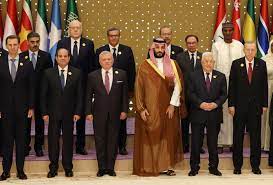Sinem Cengiz
As 2023 comes to an end, it is crucial to analyze the major trends that have influenced Turkiye’s foreign policy this year. Unlike any other year, 2023 holds special significance as it commemorates the centennial of the Republic of Turkiye, and because it was marked by several significant challenges and opportunities.
The year started with a tumultuous and tragic incident which not only affected the country’s foreign policy, but also its political and social landscape. In February, devastating earthquakes struck the southeast of Turkiye and the north of Syria. The international community’s solidarity and response was very important, with some countries initiating “earthquake diplomacy” with Turkiye, including Armenia. Amid this tragedy, a border crossing between Turkiye and Armenia opened for the first time in 35 years to allow humanitarian aid through. This was symbolically important because the two nations do not have diplomatic relations.
A few days after this tragedy, there was further cause for optimism in the region as Saudi Arabia and Iran restored diplomatic relations, facilitated by China, seven years after severing ties. The event was welcomed by Turkiye’s policymakers in Ankara. It reinforced the perspective in Ankara that the deal could encourage Turkiye to cooperate with both Saudi Arabia and Iran on different regional issues without feeling the pressure of picking a side.
Against the backdrop of significant de-escalation in the region — with Ankara starting to normalize relations with several regional actors including Egypt, Israel and the Gulf states — Turkiye held one of the most important elections in its history. The outcome of the May polls was particularly important for the future trajectory of Turkish foreign policy, and saw Hakan Fidan becoming the new foreign minister. With the appointment of Fidan, who had led the National Intelligence Organization for 13 years, the country entered a new phase in its foreign policy. Fidan is not only internationally known for his back-channel talks to improve Turkiye’s diplomatic relations with the Gulf states but is also the leading actor in the country’s normalization initiatives with Egypt and Israel.
In the post-election era, Turkiye’s policymakers drafted a new approach titled the “Century of Turkiye.” In doing so, and to reflect the importance of the Gulf states, Turkish President Recep Tayyip Erdogan embarked on a tour in July encompassing Saudi Arabia, Qatar and the UAE. Erdogan’s tour was both symbolically and strategically significant, as several agreements were signed between Turkiye and the Gulf states that sought to diversify their economies, counter security threats and enhance their roles in the region. This year also saw Turkiye and Egypt, after a decade of frosty ties, engage in efforts to mend relations. With the conclusion of Turkiye’s general elections, the rapprochement process gained speed in summer, leading to the mutual upgrade of diplomatic missions to embassies. However, while there was relative calm in the region, from Egypt to Turkiye and from Syria to the Gulf, the conflict between Israel and Hamas in October intensified geopolitical tensions. Just like the rest of the world, Turkiye was caught off guard. The Gaza crisis has seemingly marked a turning point for the Middle East, altering the dynamics of Turkiye’s foreign policy as well as delicate regional power balances. It has become a significant focus of Turkiye’s foreign policy agenda, especially as there appears to be no light at the end of the tunnel for a resolution. Turkiye’s top diplomat has engaged in shuttle diplomacy, visiting regional countries and international stakeholders, and proposing a new mechanism of guarantors to resolve the decades-long Israeli-Palestinian issue — with the suggestion that Turkiye become one of the guarantors for peace and reconciliation.
In December, amid the Gaza war, the 44th Session of the Supreme Council of the GCC was held, which Erdogan attended. The inclusion of Erdogan reflected Turkiye’s commitment to fostering stronger ties within the region, but also to structure and institutionalize its foreign relations, to encompass economic partnerships and security concerns.
In the last days of the year, the foreign affairs commission of Turkiye’s parliament approved Sweden’s NATO membership bid. Turkiye had already ratified Finland’s bid to join NATO in April but kept Sweden waiting until the latter took more steps to cooperate on terrorism-related issues. Turkiye’s move was welcomed by the West, which seeks to strengthen the alliance with regard to Russia’s invasion of Ukraine in 2022. It was Moscow’s actions in Ukraine that pushed Sweden and Finland to join NATO. Throughout the year, Ankara has cast itself as a mediator in the Russia-Ukraine war, and attempted to strike a balance between its nominally pro-Kiev policy, and cordial relations with Moscow.
This past year has seen escalating regional and international power rivalries that have resulted in growing uncertainty, and a changing geopolitical landscape marked by security challenges. Amid these concerns, Turkiye has entered its second century with a new foreign policy vision. Ankara’s two objectives within this changing landscape were nuanced diplomatic relationships with all actors, and the vigilant and pragmatic assessment of global and regional shifts.







